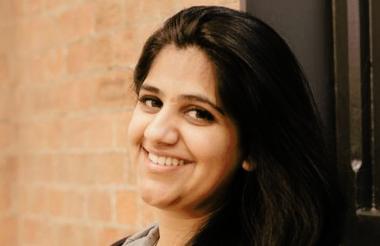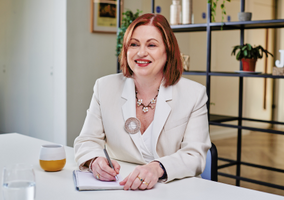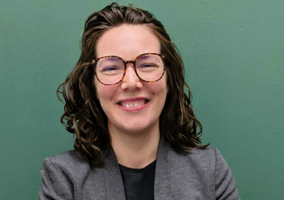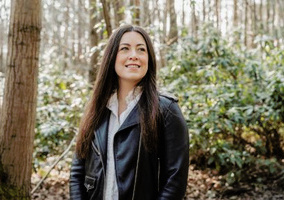Mita Desai, co-chief executive of the Young Trustees Movement and chair of Community Action Redbridge, remembers her first time serving on a charity’s board in 2012 when she was around 20 years old.
Desai thought she had applied for a shadow trustee position at the British Youth Council, which closed last year, but was surprised during the application process to learn it was a role on the charity’s actual board.
Despite feeling “there was no way I could actually do that”, Desai had a motto of never letting fear get in the way of doing things.
“What I found when I was on the board was a level of imposter syndrome I’d never felt before,” she says.
While she had worried about “failing” herself previously, Desai says, “this was a different level of what it means to fail others and fail an organisation that you care so passionately about”.
The responsibility and the weight of trusteeship were terrifying, she says, and she was aware of all the things that could go wrong.
Desai dedicated a lot of time to her trusteeship duties. Her hard work paid off. Two years after being appointed as a trustee, she moved on to chair the board.
The increased responsibility of being the charity’s chair brought with it further learning curves, including leadership and time management, she recalls.
Desai took one day off a week from her paid job so she could focus on her chair duties, which she was able to do as she lived with her parents. However, she would not recommend that other prospective young trustees make similar sacrifices.
“I was just ridiculously committed. There was so much I didn’t know, and there was so much I was responsible for. I just spent a lot of time trying to accelerate my learning.”
Desai says the biggest mistake she made when she was the chair was turning down an offer to be mentored by an author she admired because she did not want to cost her organisation any money.
“That was such a ridiculous thing to do, but at that time, that’s just the level of imposter syndrome I had. It was also about the savings mindset. I’ve come from an immigrant background, by no means poor, but there was very much that hustle culture of you can do things cheaper. And so, in my mind, I was always like: ‘How do I do things in the cheapest way?’”
Changing landscape of governance
The Young Trustees Movement launched in 2019 and grew from a research project funded by the Blagrave Trust and conducted by the Social Change Agency and another organisation called Young Charity Trustees, which closed that year.
Desai says she wishes the organisation, which provides training and aims to put more young people aged 30 and below onto charity boards, existed when she first became a trustee.
She says that today, more people expect the younger generation to participate in trusteeships.
“Young trustees are on the agenda. We see it at more conferences. We see it as more part of charities’ EDI plans. And also a huge change that has been seen since 2019 is the appetite from young people knowing that they have value in the boardroom.”
Two in five people between 18 and 24 years old expressed interest in becoming charity trustees, according to a survey in 2024 by the Young Trustees Movement and insurance firm Ecclesiastical. It was an increase from 2019, when one in four people expressed interest.
Desai’s organisation also aims to dispel some of the misconceptions people have on trusteeships and empower young people about their worth.
“Often people think that trustees are these magical people that somehow know everything they need to make decisions, but trustee boards are just made up of people doing the best they can.
“Trustee boards need to have a mixture of lived, learnt and practiced experience in order to make a difference. It’s knowing what is valued on a trustee board and why they exist, and what kind of knowledge is needed in order to make really effective decisions.
“Having young people on boards is not rocket science, it’s pure governance and logic, and the logical outcome will lead you to having inclusive practices.
“The biggest risk of navigating uncertainty and managing risk is by having homogenous perspectives and homogenous types of knowledge.
“If you had a board of all lawyers that would suck. If you had a board of all mathematicians that would suck similarly.”
Yes to paying trustees
When asked if trustees should be paid, Desai says: “Of course people need to be paid just in the same way charity employees should be paid to do their work.
“It is wild the stuff that trustee boards are responsible for, the time investment that they’re required to do, who can do that?”
But Desai says that paying trustees would not be “a magic solution” for all.
For example, it might not be possible for small charities running on a deficit to pay their trustees. However, Desai says, it is important for them to at least acknowledge that that is unfair and that they should find other ways to accommodate their trustees and create a plan to work towards paying them.
But larger charities that have the financial capability to pay trustees should do so, Desai says, adding that they should also make sure that their organisational values are represented within their board.
“There are charities that talk about equitable ways of working,” she says. “They would never have unpaid interns, but then they just don’t pay trustees and they have the budget to pay them.”
Some people leave boards because they can’t afford childcare, and covering trustees’ expenses is the bare minimum, she says.
“But that’s not the end of the journey. We still need to advocate for so much more to change.”
Meaningful trusteeships
The Young Trustees Movement wants to increase the quality as well as quantity of young trustees on board and make more meaningful placements.
Through its programmes, young people learn how they can participate in governance and “not just talk about social media, but on how they can lead on reserves policy even if they’re not an expert in that area”, she says.
“Our movement is not just about getting young people on trustee boards. It’s actually about innovating governance as a whole, and young people being on boards is just a mechanism to that.
“When young people get on trustee boards, they will say two words and the core board will be revolutionised because they ask questions and state that they don’t know the financial operation of the charity’s agenda.”
Desai says that some more senior trustees appreciate their younger colleagues asking questions they feel unable to themselves.
“It is not what you know, but it is the questions that you ask that can be really powerful.
“It’s less about what you offer in terms of advice or input, but it’s more about how you listen and build upon each other’s ideas to get a collective understanding and that curiosity is one of the most powerful things on the board.
“It’s about creating a governance revolution.”
Related articles












